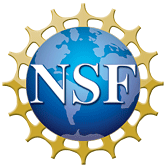 |
|
Netherlands Institute of Ecology |
|
+31 (0)317 473 555 |
|
|
Steven Declerck |
|
Netherlands Institute of Ecology |
I am interested in the question how patterns in biodiversity are shaped by dynamics at both local and regional scales, and how knowledge on these dynamics can be used for the development of effective conservation and management schemes. Metacommunity ecology is a rapidly expanding field in community ecology with an increasing impact on current thinking about communities, biodiversity, ecosystem functioning and conservation biology. An important part of my recent research has focused on how spatial dynamics can affect the structure, biodiversity and trophic interactions in aquatic metacommunities. Using data from large scale field surveys (e.g., ditch networks in The Netherlands, farmland ponds in Belgium and temporary pools in the Bolivian Andes), we study how the structure of metacommunities is related to the dispersal mode of organisms, connectivity patterns in the landscape, heterogeneity in the environment and spatial scale. We also use mesocosm to explore potential interaction effects of dispersal with environmental heterogeneity. Traits of species are not necessarily fixed but can be prone to rapid evolutionary change. Such changes can have important implications for the interactions of populations with their biotic, physical and chemical environment. For this reason, we are currently setting up a research line that will address contemporary micro-evolutionary change in zooplankton populations and the consequences this may have for the dynamics of food web interactions, biodiversity and ecosystem functions.
Content credit by:


